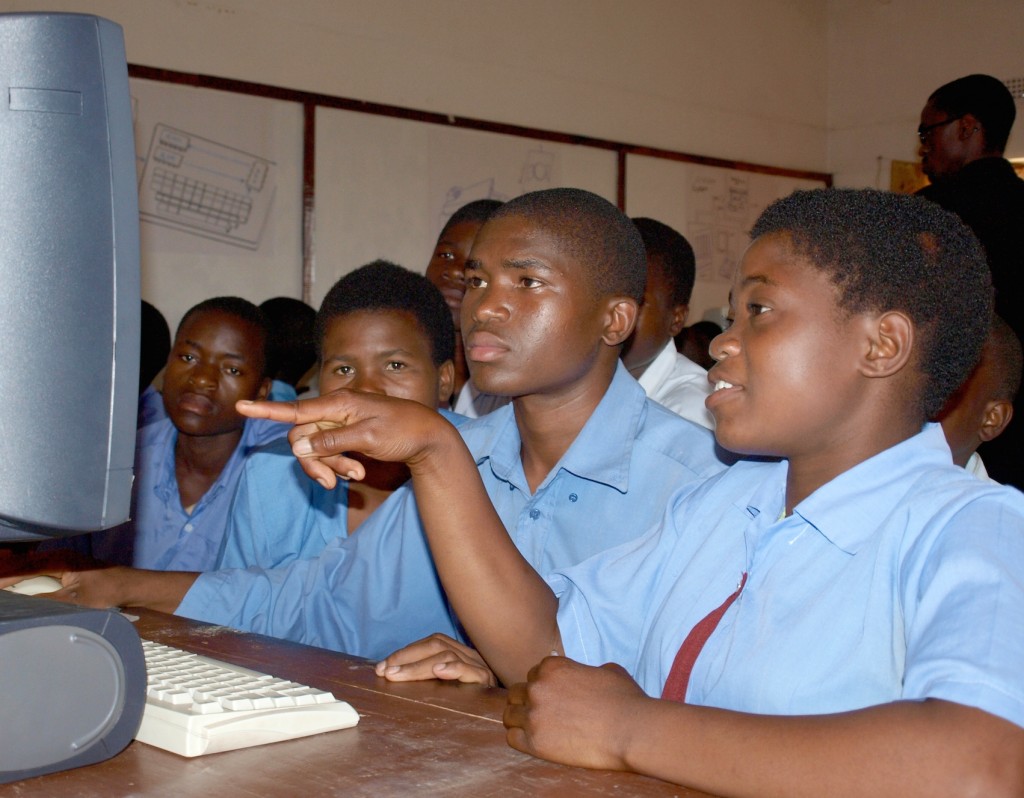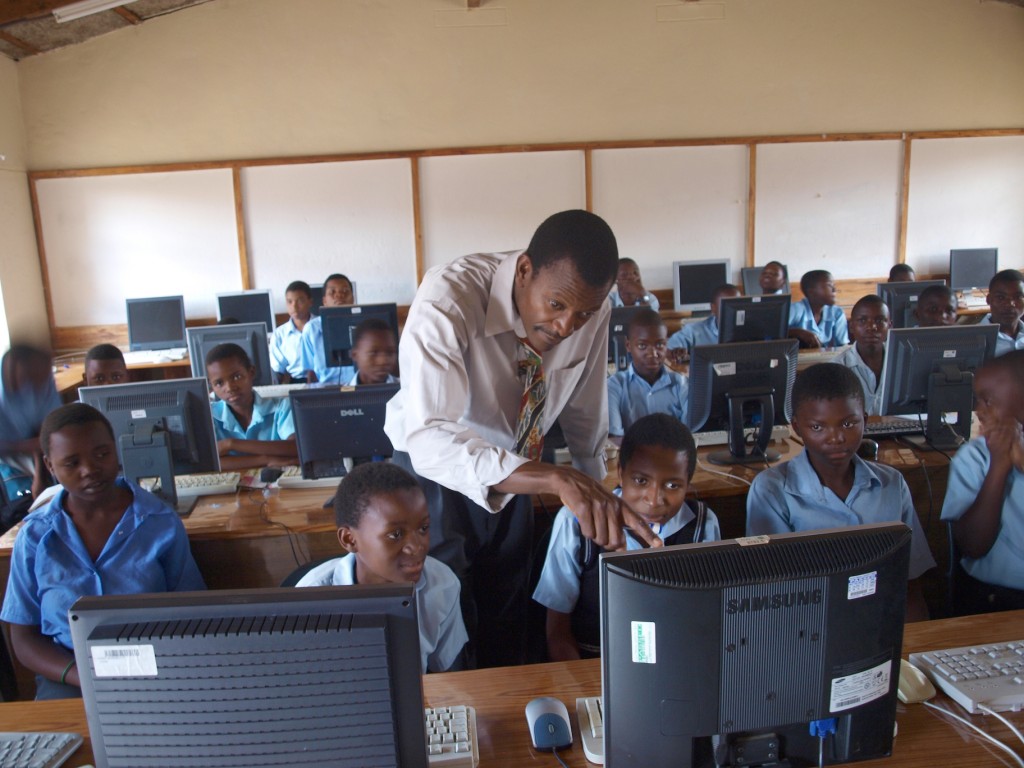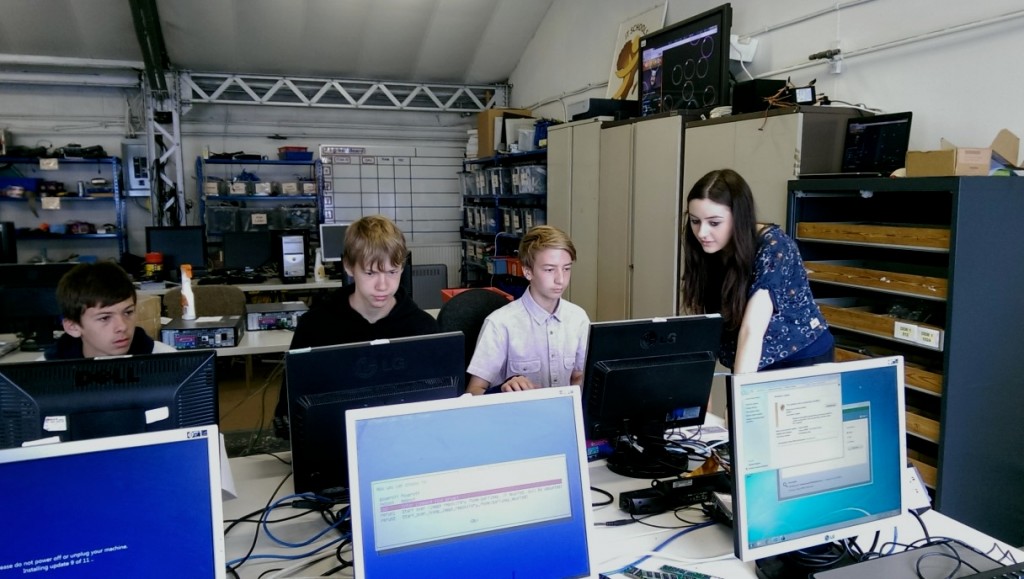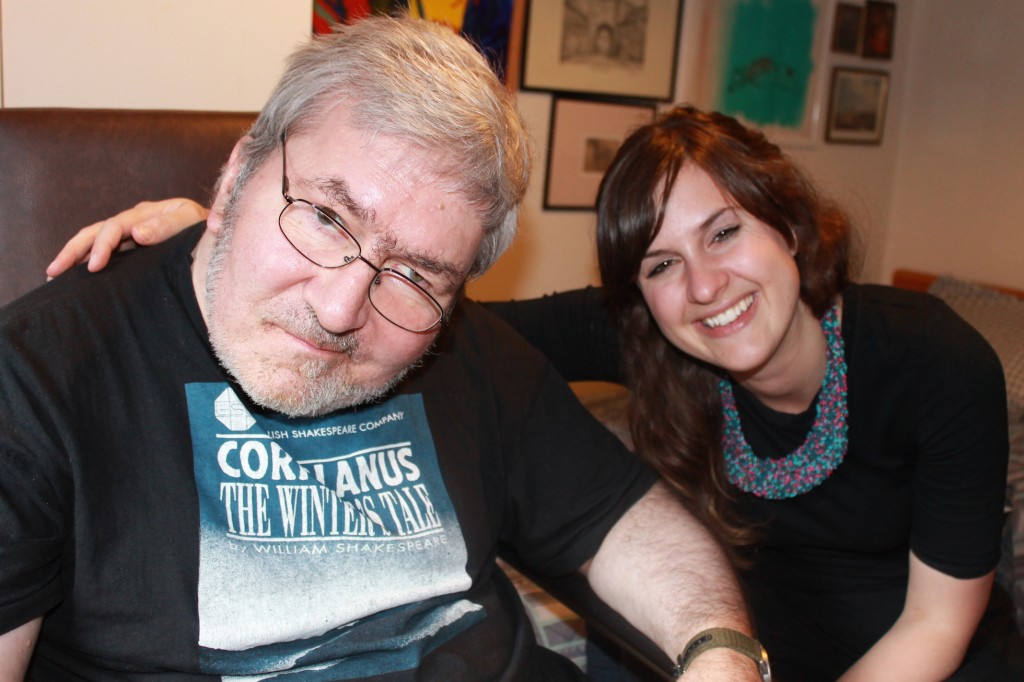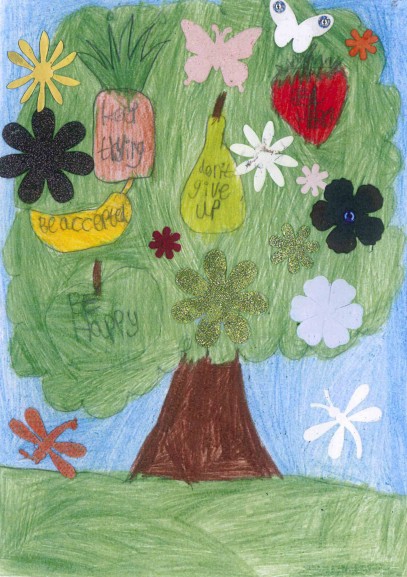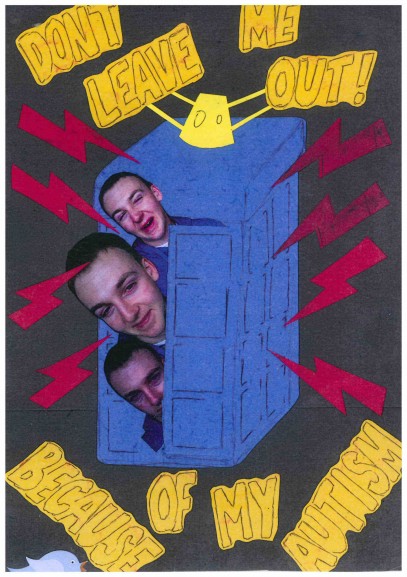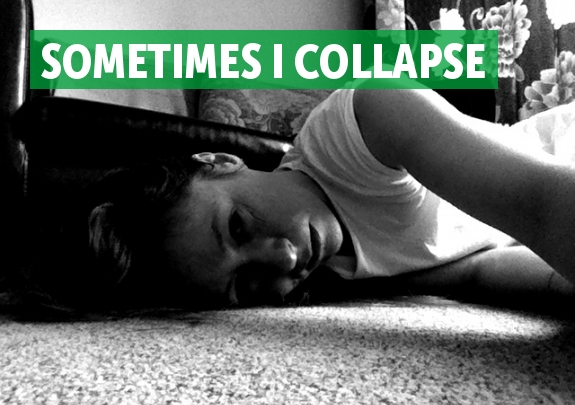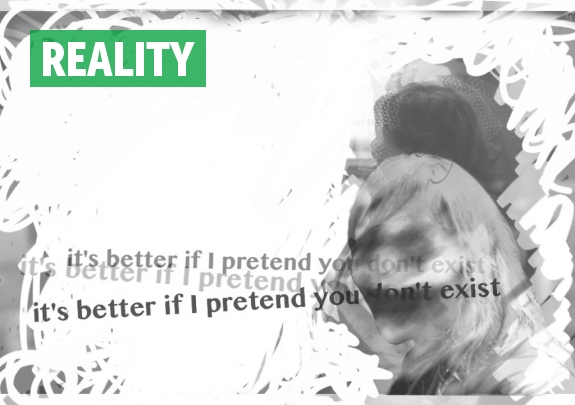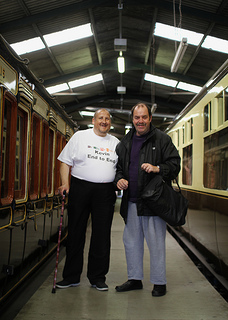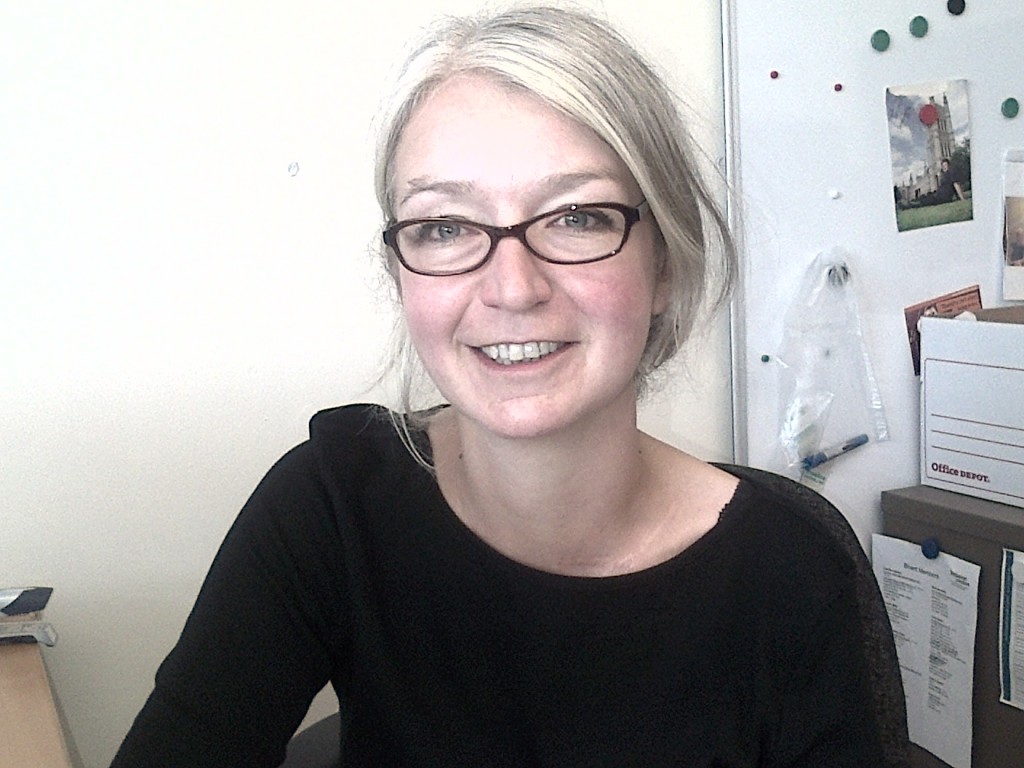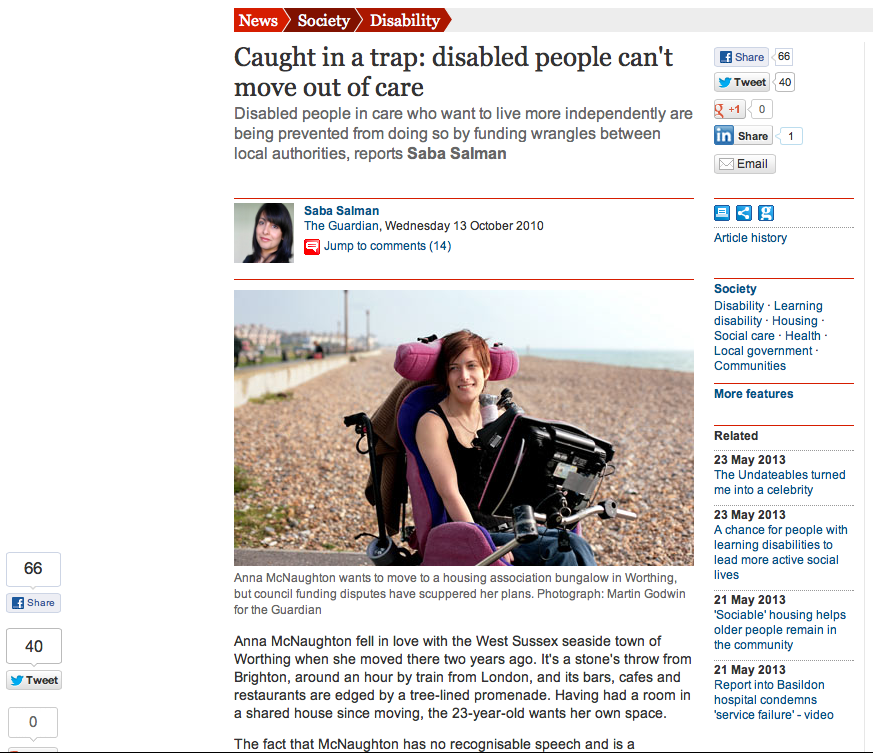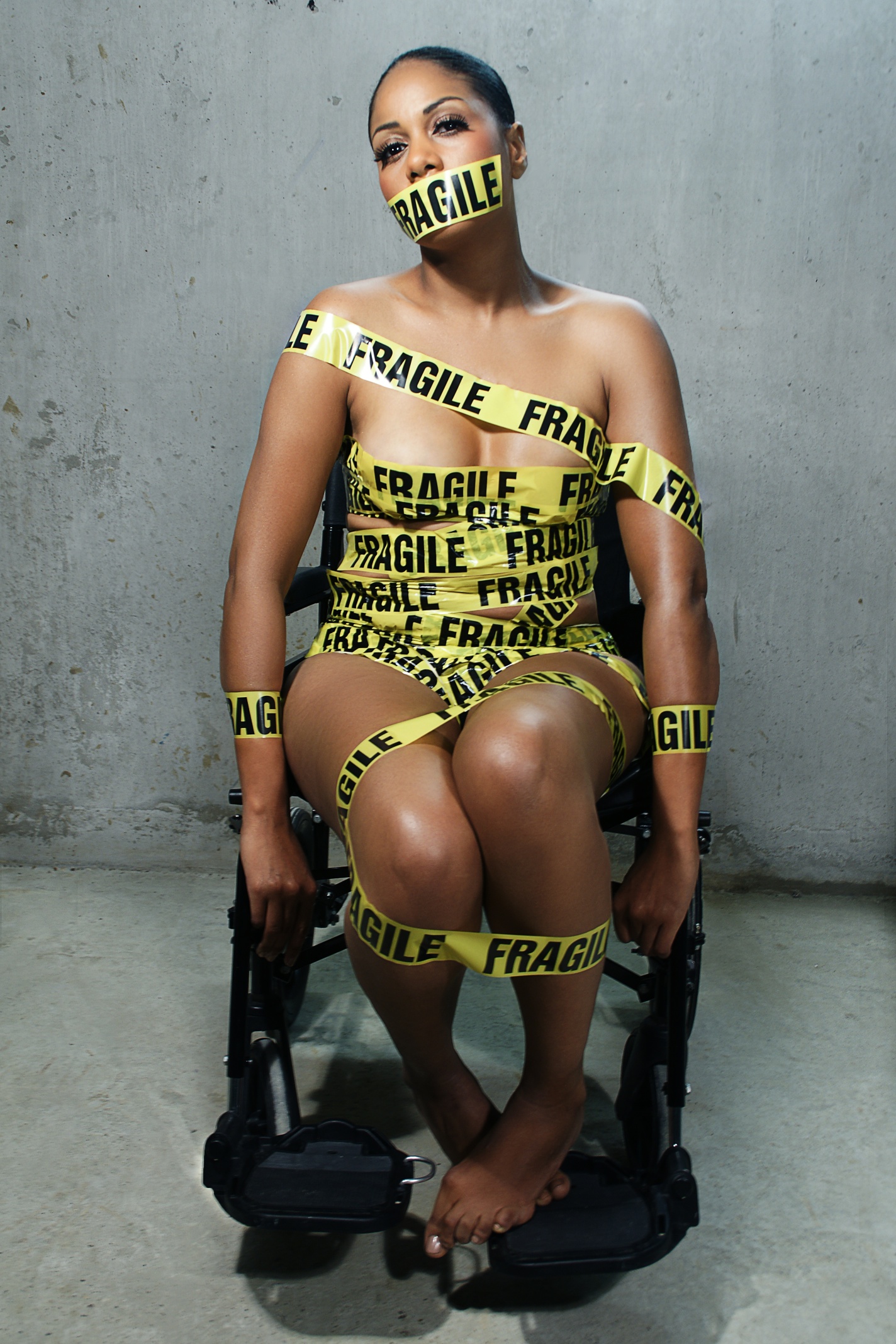
A new organisation bringing together disabled people’s organisations in west London has just been launched. The launch of Hammersmith and Fulham Disabled People’s Organisations Network was made on the International Day of Persons with Disabilities last week and coincided with the local authority’s decision to abolish home care charges – something that the campaigners behind the new network (Hammersmith and Fulham Coalition Against Cuts HAFCAC), has long fought for.
The new network will collaborate with the council “to ensure disabled people’s involvement in the design and delivery of new policies and programmes”. In this guest post, Kevin Caulfield, who chairs HAFCAC, and fellow campaigner Debbie Domb, explain more about the new organisation and you can read more here.
Why we launched the Hammersmith and Fulham Disabled People’s Organisations Network:
DD: Our main aims are to promote the rights of disabled people, to support local disabled people to speak up and get their voices heard and to promote the social model of disability.
KC: This is hopefully dawn of new era in Hammersmith and Fulham. We want to work in equal partnership where we can with the new council. Bringing together the borough’s disabled people’s organisations (DPOs) unites our experiences, expertise providing peer organisational support.
How the new group will be different to existing organisations:
KC: We believe it’s the first local network of DPOs certainly in London. We need more than ever to work together to defend and promote inclusion human rights of disabled people.
We believe there’s something of a “tipping point” in disability rights at the moment:
KC: We have had enough of the scapegoating, punitive policy changes pushing us back to the margins and some of us over the edge to desperation, isolation, destitution and in some cases suicide or death by negligence.
DD: In the borough of Hammersmith and Fulham, these factors were magnified as we were ‘David Cameron’s favourite borough.’ (Thankfully no longer ) Policies were implemented here prior to being rolled out nationwide. Disabled people were treated with total contempt by [Tory former council leader] Greenhalgh et al; we were laughed at in council meetings and not allowed to speak. cuts to our services were disguised as ‘efficiencies’ and we were treated as cash generators.
HAFCAC started as a grassroots campaigning group that was entirely self funded. Since then many grassroots campaign groups of disabled people have formed. Ian Duncan Smith particularly targeted disabled people as we were perceived as unable to fight back, groups like DPAC (Disabled People Against Cuts) which spearheaded actions by hundreds of disabled activists show he was mistaken.
There is a raft of issues locally that disabled people are concerned about:
KC: Nearly every aspect of our lives [concern us] but locally
· Hospital closures
· Accessible and truly affordable housing
· The breaking up of schools making inclusion of disabled students less likely
· Charging for services
· Eligibility for state support
· Cuts to standard of living, destruction of the welfare state.
· Closure independent living fund
· Taking our direct payment support service in house with no consultation
· Quality of home ‘care contracts.
HAFCAC is currently campaigning on a number of issues:
DD: Hospital closures, continuing to work with other activists with DPAC and other DPOs currently on saving ILF; we’re waiting for judgement any day now [a high court case has since been lost but campaigners are determined to fight on].
We have a vision for the future work of our new organisation:
KC: I hope we have created a new model for working effectively with a council that is different from involving us just when the decision is about to be made that we are seen as a flagship borough all over for promoting disabled people equality and starting to make it really happen. That we can expose austerity for what it is a calculated pernicious opportunity used to demonise, discriminate, worsen life chances by punishing the poor and marginalised.
DD: Finally we have a council that wants to engage and work with us, the relationship is mutually beneficial. It will be fantastic if Hammersmith and Fulham can be seen as a flagship borough for disabled people’s equality, as rather than as previously the borough who ‘put disabled residents last.’

